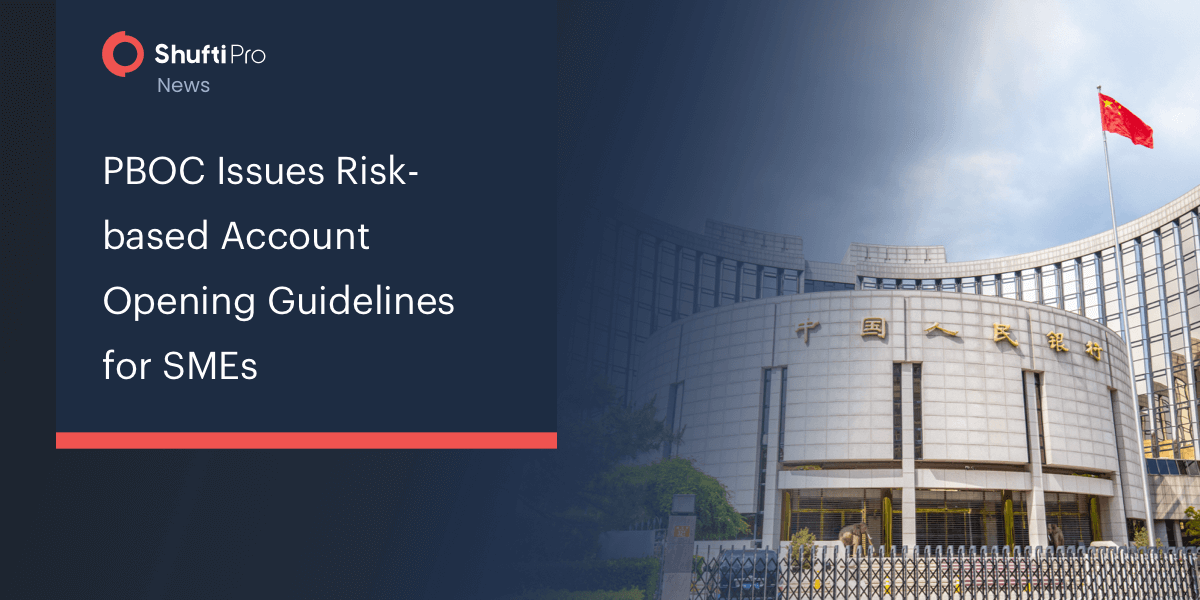PBOC Issues Risk-Based Account Opening Guidelines for SMEs

The PBOC has issued guidance on Oct 14, 2021, for SMEs to adopt a Risk-Based Approach (RBA) when opening new bank accounts.
The People’s Bank of China (PBOC) has issued a new guidance regarding bank account opening for small-sized enterprises to adopt a risk-based approach.
The People’s Bank of China (PBOC) issued guidance for small and medium-sized enterprises (SMEs) to establish effective management when opening bank accounts. The guidance states that banks must improve the process of account opening and must follow a Risk-Based Approach (RBA) for SMEs.
China-based banking guidance encourages the adoption of differentiated CDD (Customer Due Diligence) measures for a streamlined and convenient bank opening procedure. For instance, banks can adopt digital onboarding solutions to diminish the need of redundant and length paperwork.
The guidance additionally states that Enhanced Due Diligence (EDD) is unnecessary if the purpose of opening the bank account is valid. Hence, users must be classified according to the risks associated with them and then specifically investigate and verify suspicious accounts. Proper monitoring procedures must be followed to identify the users involved in suspicious activities. Finally, public authorities must be sent Suspicious Transaction Reports (STRs) for further action when the users are identified.
By the end of 2021, banks need to set up classification and hierarchical management systems for SME bank accounts according to the guidance. The move was suggested to ensure proper KYC verification compliance and mitigate related risks while the quality and efficiency of managing the bank accounts are enhanced.
The PBOC guidance is directed towards banks for effective AML/CFT compliance and to mitigate the risks of fraud and gambling.
Suggested Read: Digital customer onboarding – Revamping onboarding process in banks











